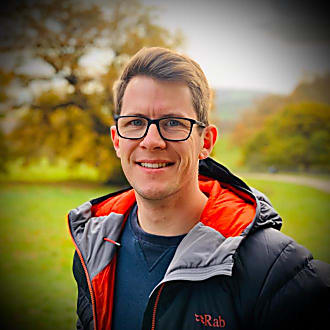Daniele Procida
on 9 August 2023
Not just an annoying list of questions
Imagine if – as a job applicant – you could put yourself right in front of the hiring lead, and tell them, in your own words, in your own time, without interruption or distraction or pressure, why you think you’d be an excellent person for the role.
What kind of applicant would benefit the most?
Unfair bias in hiring
In our industry, certain groups of people are badly under-represented. They include women, non-westerners, people from the global South, people whose careers have been interrupted by life-events. They also typically do less well in its hiring processes – particularly at the application screening stage, and in interviews.
Consider two candidates, who would be equally excellent in a certain role.
One is well-established; they have years of experience in the right companies and a stellar CV. They enjoy the easy charm and confidence that come with good connections, and the kind of personal background that’s an ideal springboard for career success.
The other lacks such personal advantages. Perhaps they’ve had an interrupted career, or want to switch careers, or come from a part of the world where it’s harder to acquire those “desirable” experiences, and come into interviews less sure of themselves and of what is expected.
It’s clear that application screening is inherently biased in favour of the candidate who is already in a position of personal and social advantage, who is much more likely to have an impressive CV.
The same candidate also has an advantage in interviews – they know what to expect, what to say and how to say it; they’re confident and calm, they know how to impress.
The other candidate meanwhile, however intelligent and skilled, comes across much less well in their CV. They highlight the wrong things, and neglect ones that matter. Career gaps (perhaps due to parenthood, or illness) count against them. They lack a helpful network of contacts to guide them – perhaps they don’t know anybody in the industry, perhaps they live in the wrong part of the world.
And at interview, they’re less familiar with expectations and more nervous; they have fewer ready answers and they’re taken by surprise. It’s hard to give the best impression when you’re under stress.
Application screening and interviews are key and almost universal components of hiring, and they pile disadvantage onto disadvantage for some candidates.
What can we do about it?
Understanding what we need
As a hiring lead at Canonical, I receive thousands of applications.
I am particularly interested in hiring Technical Authors – writer-programmers who can turn their understanding of users’ needs into first-class product documentation, and have the leadership to steer their own engineering team’s efforts towards that ambition.
We need many attributes in a candidate. Penetrating intelligence and intellectual, technical curiosity; initiative and ownership; confidence and leadership; demonstrable enthusiasm for the open-source software movement, and values that will make a positive contribution to our workplace; a fierce commitment to documentation as a craft, and a genuine programmer’s mindset.
That’s quite a shopping list, but look what it omits. We don’t require a certain number of years of experience, a particular degree (or even a degree at all), or skills with particular tools or programming languages.
You might also notice that the things we want most are much harder to show on a CV than the ones that matter less. At best, a CV can hint that the candidate has what we seek – and since we already know that the CV screening process can disadvantage potentially excellent candidates, it seems like a good idea to reduce its impact in hiring.
The written interview
Our solution is a written interview stage. If the initial application shows that the candidate might be suitable, we advance them to a written interview. The CV has done its job. It shouldn’t do more than that.
The written interview covers all kinds of topics. Some questions elicit the candidate’s thoughts, on topics such as documentation principles, how engineering teams can manage documentation sustainably, or the industry. Others probe their attitudes. Some are about their background, experience and education.
It’s an opportunity for the candidate to show how they think and who they are, without pressure. They don’t have to come up with answers on the spot. They can do it without being rushed. They get time to reflect. This is especially valuable for candidates who might not have been asked some of these things before.
It also prepares them for subsequent in-person interviews. Now they know what sort of things we’re interested in and might want to talk about. They have given us things to ask them about – even before they get to an in-person interview, the candidate has had the chance to set some of the agenda for those future conversations. It gives them prompts to clarify their own thoughts. We can’t eliminate all of the inherent unfairnesses of interviewing, but the written interview helps level the playing-field a little.
All the in-person interviewers will read the interview: it means they come well-prepared, and the candidate doesn’t have to repeat the same basic answers; instead, they can give deeper, more interesting ones.
The written interviews of less experienced candidates often reveal depth of thinking and valuable insights and experiences, or characteristics like leadership, that they didn’t even realise were of key importance. We positively value our candidates’ diverse, unique and personal perspectives – we want to hear their thoughts – and the written interview gives them a place to express them. Our interviewers use their answers to explore their strengths more effectively – once again, that means a better chance for success for those candidates.
Objections
Some candidates refuse to complete the written interview: “I’m not going to answer this annoying list of questions. If my CV is good enough for you, schedule a proper interview”.
I am always sorry to lose a good candidate, but it’s notable that these are inevitably the ones who arrive full of experience and confidence, the advantaged ones, and not the ones on the other side of the unlevel playing-field.
Still imperfect
We know quite well that the written interview isn’t a perfect solution to the problems we’re trying to address.
For example, candidates need to find the time to give the written interview the attention it deserves, which is easier for some than for others. It can slow down the hiring process, and that also tends to disadvantage some groups especially. We’re aware of its imperfections, and we’re always trying to find ways to make it work better.
A door, not a filter
Completing a written interview is no guarantee of progress for the applicant. For some, it will turn out to have been an investment with no return – though no-one should expect never to be disappointed when applying for a job. But the candidate’s investment of time is treated with respect, and we take the written interview seriously. Each one is assessed by between two and four independent reviewers (always including me). The other reviewers are Canonical technical authors.
Still, we must judge results, not promises. The results are: of nine new authors hired in recent months, six are women. Three are from non-western nations. Four are quite new to careers in software documentation. Four would not have passed a traditional CV review – but the written interview gave them the chance to show how they shine.
We’re hiring dozens more, and have a vibrantly diverse pipeline of candidates. There’s a special thrill in seeing potentially outstanding future colleagues advancing through our hiring process who otherwise would have been excluded. It might seem like “an annoying list of questions” to some, but the written interview is not a filter, it’s a door, one that gives more people a fairer chance and helps draw greater diversity and excellence into Canonical.



